It's Time to Conquer the Wealth Stigma
Nina Vaca is the quintessential American success story.
The daughter of Ecuadorian immigrants, she grew up in a humble house among four other siblings. For much of her childhood, her father worked odd jobs—sanding checkerboards, parking cars, and odd jobs that came from friends.
Eventually, however, he became an entrepreneur—the owner of a travel agency that was counted as successful because it did everything it needed to: It put food on the table.
Nina helped out at the travel agency as a child, learning basic lessons about how to run a business. But when her father was killed during a robbery at the agency, her life shifted dramatically. She and her sister, Jessica, stepped in to balance the books and prepare the agency for sale. She was only 17.
This unexpected “trial by fire” gave Nina exactly what she needed to launch her own company at age 25. Spurred on by her father’s entrepreneurial spirit and committed to building a business that would honor his memory, she launched the Pinnacle Group staffing agency with just $300.
Some 20 years later, that company now generates more than $650 million in revenue every year.
To some, it may seem that Nina pursued business growth and wealth to an absurd degree. Why did Pinnacle need to grow so much? Did she just want more money? Why not be satisfied with what her father accomplished—creating a business that would simply put food on the table?
But Nina knew that wealth was far more than dollars in the bank.
Understanding the value of wealth
“When you say ‘yes’ to wealth, you’re saying ‘yes’ to your potential for freedom.” —Paul Morris
Many people equate wealth to material goods and services. When we think of “wealth,” we immediately conjure images of lavish vacations, luxury cars, and opulent houses. That kind of “wealth” often comes packaged with Scrooge-esque negativity.
But, as the old saying goes, “money isn’t everything.” So how is wealth different than money? What value does it have at its core? And how can it be positive?
When you strip away all material possessions and all of the notions and attachments that go with them, you’re left with three “wealth pillars”:
1. Health
2. Family/relationships
3. Freedom
When these are whole, we are happy. But as is the course of life, one or more of them is often damaged by external forces we can’t control. Fortunately, one of the tools we can use to support and defend them is money.
Here’s an example of that in action:
The Bill and Melinda Gates Foundation is celebrated worldwide for its investment in third world development. As one of its many campaigns, the Foundation has spent nearly two decades fighting malaria in Africa. Because of their millions of dollars in treatment and prevention funding, Sub-Saharan Africa has seen more than a 40-percent decline in malaria deaths.
This is a broad scope example, of course, but it gets to the real value of wealth—that money affords us and our loved ones the best health, food, care, and housing available.
For individuals, there are countless ways money can help secure the three “wealth pillars.” For example:
* Adoption fees that enable infertile couples to build a family
* Plane tickets that make spending time with loved ones possible
* Tuition payments that allow ambitious dreamers to study subjects they’re passionate about at schools they love
The bottom line is this: Wealth is a lot more than the acquisition of things. It is valuing the three “wealth pillars”—health, family/relationships, and freedom—and protecting them through the careful use of hard-earned money.
It is not, as some people assume, amassing money as an end unto itself.
Why wealth can’t wait
“The biggest obstacle to wealth is fear. People are afraid to think big, but if you think small, you’ll only achieve small things.” —T. Harv Eker
For someone like Nina—whose childhood was stymied by immigrant status and the difficulties her father faced securing a steady job—wealth is urgent. When the fundamental needs of life—basic human necessities, as well as health, family, and freedom—are in question, then we have no choice but to fight to ensure they are secure and that they will never be in jeopardy again.
While our circumstances may vary greatly from Nina’s, the same principle applies to us. No one is free from unexpected upheavals that threaten to turn the pillars of our lives into rubble.
So why wait for something bad to happen? Why turn down the opportunity to secure what’s most important to us? The one thing we cannot buy is time—so make the most of it.
And yes, people will tell you that your pursuit of wealth is misplaced or misguided. Don’t listen to them. As Robert Allen once advised, “Don’t let the opinions of the average person sway you. Aquire wealth, and he thinks you’re greedy. Pay no attention. He simply doesn’t understand.”
Remember: There is nothing wrong with wealth. Quite the opposite, in fact. It is the way we ensure the most important things in our lives are protected, whole, and secure.
Your pursuit of wealth, true wealth, can’t wait.
